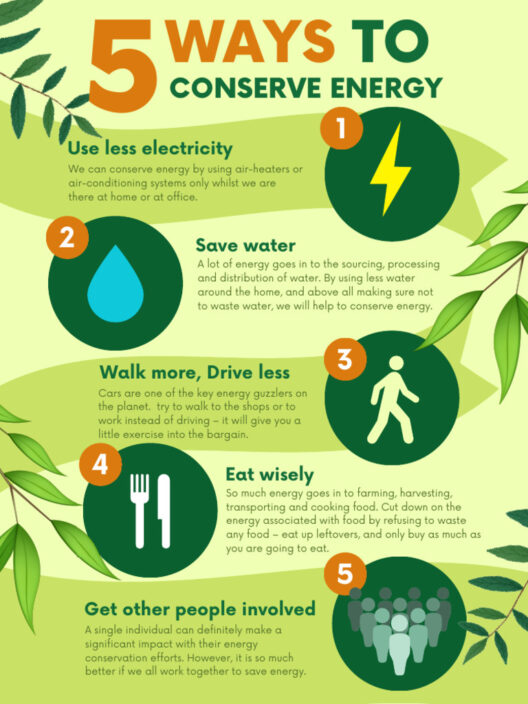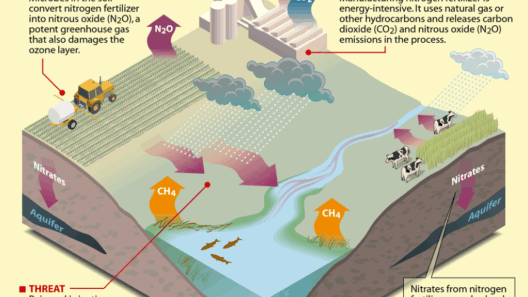As we traverse the intricate tapestry of climate change, a curious question arises: does the heat generated by our bodies contribute to global warming? While this notion may initially evoke a playful smirk or a lighthearted chuckle, it beckons a deeper exploration into how individual human behaviors interlace with the overarching threats posed to our planet. Understanding this connection can illuminate the ways in which we inadvertently impact our environment.
To answer this question, it is essential to delve into the concept of body heat. The human body, through metabolism and physical activity, constantly generates heat. On average, an adult produces around 100 watts of thermal energy at rest. During strenuous activities, this number can soar to upwards of 1000 watts. It becomes clear that humanity collectively produces a significant amount of heat. But how does this translate on a global scale to influence climate dynamics?
Let’s consider the sheer volume of Earth’s population, now exceeding 8 billion. If each person emits around 100 watts, it calculates to more than 800 billion watts—enough energy to power several large cities. However, the critical inquiry remains: does this localized heat production play a role in the complex systems regulating Earth’s climate?
Firstly, it is crucial to differentiate between local and global climate phenomena. Localized heat from human bodies typically disperses quickly into the surrounding environment. The urban heat island effect, for example, illustrates how cities can trap heat due to concrete and asphalt infrastructure. While individual body heat contributes to localized warming, its effect is trifling in contrast to the broader factors contributing to climate change, such as greenhouse gas emissions.
Greenhouse gases, predominantly carbon dioxide (CO2), methane (CH4), and nitrous oxide (N2O), are responsible for capturing heat in the atmosphere, thus leading to global warming. These gases are released through various human activities, including burning fossil fuels, deforestation, and industrial processes. The sum of these activities creates a significant imbalance in the Earth’s climate system, dwarfing the relatively minuscule contribution from human body heat.
Moreover, it’s not just greenhouse gases that drive climate change—deforestation, agriculture, and land use patterns also play pivotal roles. Land use changes, especially those linked to agriculture, contribute to a considerable portion of global emissions. The cultivation of crops and livestock yields methane and CO2, often overshadowing the impact of body heat in the climate discussions.
This begs another important question: how much do individual actions matter in the fight against climate change? Despite the seemingly negligible impact of body heat, our cumulative actions can lead to significant environmental consequences. If every individual were to adopt sustainable practices—such as reducing energy use, minimizing waste, and supporting renewable energy sources—the effects could be profound.
Furthermore, it’s essential to consider energy consumption linked to technology and lifestyle choices. For instance, increasing reliance on electronics and high-energy appliances within a home not only raises individual energy expenditure but also exacerbates the demand on power plants, which are often fueled by fossil energies. The cumulative heat, emissions, and energy draws from human existence contrast sharply with the minimal contribution from our body heat alone.
Nevertheless, the interplay between human activity and climate cannot be discounted entirely. The question of whether body heat contributes to global warming can serve as a litmus test for broader discussions about our connection to the planet. If we can recognize the extent of our responsibilities as stewards of the Earth, it transcends mere body heat to foster significant discourse on lifestyle choices and environmental awareness.
Moreover, individual actions can inspire broader societal movements. When communities rally to implement sustainable practices, they can effect change at a level exceeding individual emissions. For example, collective advocacy for policy changes that regulate greenhouse gas emissions can drive large-scale reductions that benefit the planet significantly.
It’s essential to communicate the seriousness of global warming in tangible ways. Engaging in everyday actions that support climate resilience—from reducing water and energy usage to promoting biodiversity—reveals pathways for individuals to engage meaningfully in the fight against climate change. Schools and organizations can promote outreach programs focusing on climate education, helping the next generation understand their role in climate stewardship while reinforcing the idea that every small effort counts.
As we ponder the question: “Does body heat contribute to global warming?” it becomes evident that while our individual thermal emissions are negligible in comparison to larger, system-wide effects, our conscious engagement in environmental protection is crucial. By cultivating a holistic understanding of our impact, we foster a community ethos that champions sustainability.
In conclusion, our body heat may offer a whimsical thought experiment, but it chiefly serves to highlight our collective responsibility toward the climate. As we strive to mitigate our contributions to global warming, let us not forget that our actions, however small, resonate far beyond the thermal energy we produce. Let this inquiry serve as a playful yet profound reminder—every element of human existence, combined with sustainable practices and conscious decisions, shapes the future of our planet.







